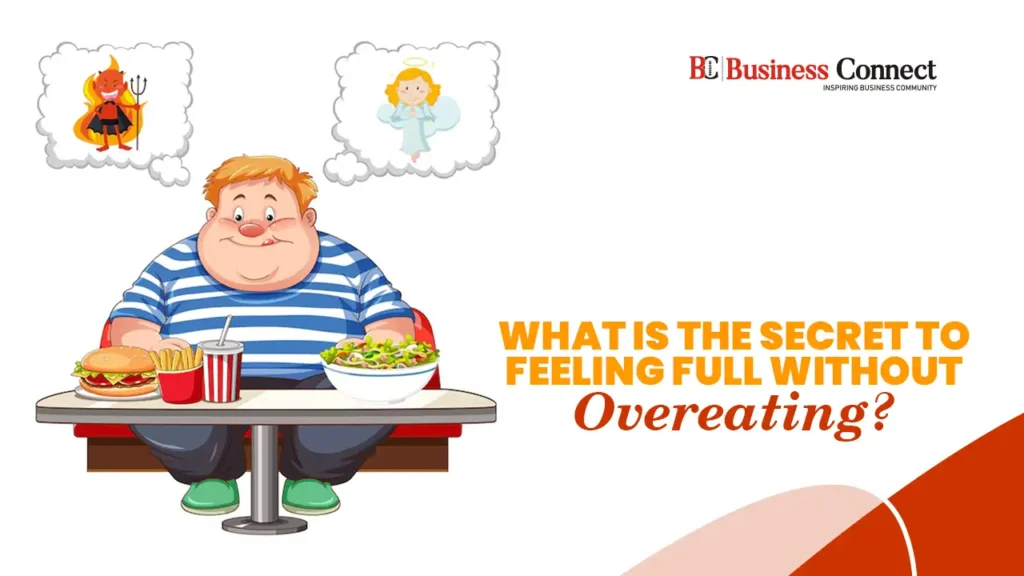What is the Secret to Feeling Full Without Overeating?
In our day-to-day life, we often tend to overconsume calories. It is a common habit and a bit tough to break. This habit results in weight gain and conditions like diabetes or heart disease.
Overeating can make you feel sluggish and bloated without feeling full. You can feel full without eating much, and with the right eating habits.
Things to Do to Feel Full
If you don’t want to load yourself with unhealthy calories, we have come up with smart eating habits for you. These can keep your weight in check. Let’s take a closer look at them:
Focus More on Nutrition
The biggest secret to feeling full lies in what you eat, not how much. If you add meals rich in protein, healthy fats, and fibre, these can keep you fuller for longer. It happens because your digestion slows and blood sugar levels stabilise. You can find these nutrients in eggs, lentils, chickpeas, vegetables, and whole grains.
Don’t Forget to Add Protein for Lasting Fullness
Being unaware of nutrition, we eat whatever we get. Out of all the nutrients, protein is the most satiating macronutrient. It helps regulate the hunger hormone ghrelin, reducing your urge to snack unnecessarily. A protein-rich breakfast or snack can make a noticeable difference in your appetite control throughout the day. You can even go for convenient options like protein bars . Just check the sugar and protein content in it to feel full during the munching time.
Include Healthy Fats
Fats are often portrayed as bad for your health, but healthy fats are crucial for you to feel full. Avocados, nuts, seeds, and olive oil help slow digestion and send satiety signals to your brain. To make a balanced meal, pair them with complex carbs and protein.
Watch Your Portion Size
Most of us eat distractedly, scrolling through reels or working on our laptops without even realising how much we have consumed. This is why it is important to eat mindfully. Chew slowly,
savour each bite, and understand your body’s signals. This simple habit can drastically reduce the chances of overeating because it gives your brain enough time to register fullness.
Hydrate Before You Eat
Sometimes, your body is hydrated, but you may misinterpret it as hunger. Drinking a glass of water 15-20 minutes before a meal can help prevent overeating. Herbal teas or infused water can also be refreshing ways to stay hydrated throughout the day.
Smart Snacking Choices
If you get hungry between meals, choose snacks that have protein, fibre, and healthy fats. You can choose an apple with myfitness peanut butter. It is both delicious and filling. This combo slows digestion, keeps blood sugar levels in check, and ensures you won’t get tempted to unhealthy munching so soon.
Summing Up
Do you eat more to feel full, but end up overeating? To follow this habit, you don’t need to restrict yourself. You just need to make smarter food choices and pay attention to how your body responds.
Protein, healthy fats, fibre, and mindful eating practices can help control your hunger while nourishing your body in the best possible way.



